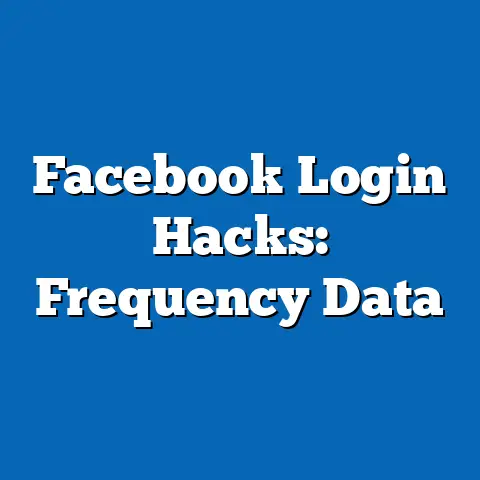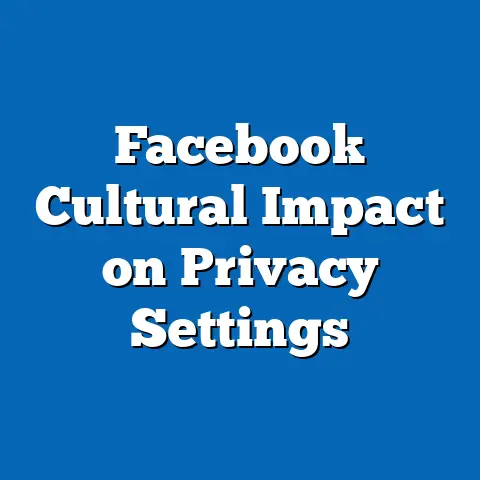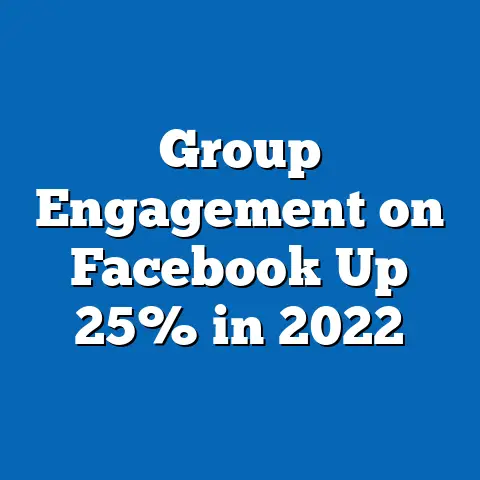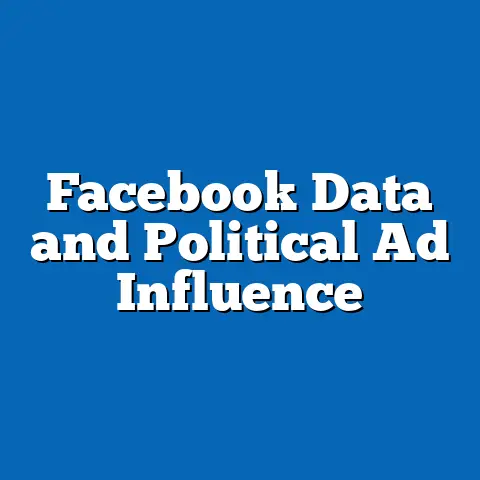Impact of Facebook Security Alerts on Users
The Impact of Facebook Security Alerts on Users: A Generational Perspective
Introduction: Generational Customizability, Defining Characteristics, Historical Context, and Societal Implications
Generations are not static entities; they represent cohorts shaped by shared historical experiences, technological advancements, and cultural shifts, allowing for a degree of customizability in how individuals within them adapt to societal changes.
For instance, each generation customizes its engagement with digital tools based on the era in which it came of age, influencing behaviors like responding to security alerts on platforms such as Facebook.
Key defining characteristics of generations include their formative events, economic conditions, and technological exposures, which create both commonalities and individual variations.
Historically, the concept of generations emerged in the early 20th century through sociologists like Karl Mannheim, who argued that shared historical contexts bind cohorts together, fostering unique worldviews.
The Greatest Generation (born 1901-1927) was forged in the Great Depression and World Wars, emphasizing resilience and community.
Baby Boomers (born 1946-1964) grew up amid post-war prosperity and civil rights movements, often characterized by optimism and a drive for social change, though with internal diversity.
Societally, these generational traits have profound implications, affecting everything from workplace dynamics to technology adoption.
For example, the customizability of generational behaviors means that while Millennials (born 1981-1996) might prioritize digital privacy due to their experiences with the internet’s rise, Gen Z (born 1997-2012) could customize security responses based on their immersion in social media from a young age.
This diversity within generations underscores that not all members conform to stereotypes, as factors like geography, socioeconomic status, and personal experiences add layers of nuance.
In this article, we extend this generational lens to examine the impact of Facebook security alerts on users.
Facebook, now Meta, introduced security alerts as part of its evolving privacy features, such as two-factor authentication and suspicious login notifications, to combat rising cyber threats.
By analyzing how different generations interact with these alerts, we can uncover broader societal implications, including shifts in digital trust, privacy norms, and intergenerational divides in technology use.
This exploration draws on quantitative data from sources like Pew Research Center and Statista, as well as qualitative insights from experts in generational studies and cybersecurity.
Defining Generations and Their Customizability in the Digital Age
To understand the impact of Facebook security alerts, it is essential to first define generations and their customizable traits in relation to technology.
Generations are typically delineated by birth years, with each cohort sharing formative experiences that shape their values and behaviors.
For clarity, we focus on five key generations relevant to Facebook’s user base: the Silent Generation (born 1928-1945), Baby Boomers, Generation X (born 1965-1980), Millennials, and Generation Z.
The Silent Generation, often seen as more cautious and community-oriented, customizes technology use based on necessity rather than enthusiasm, influenced by their experiences with mid-20th-century innovations like television.
Baby Boomers, shaped by the 1960s counterculture and economic growth, tend to view technology as a tool for connectivity, but they customize security measures with a mix of skepticism and adoption.
Generation X, known for its independence and adaptability due to events like the Cold War and the rise of personal computing, often customizes digital interactions to balance privacy and convenience.
Millennials and Generation Z exhibit higher levels of customizability in digital spaces, driven by their “digital native” status.
Millennials, coming of age during the dot-com boom and 9/11, customize platforms like Facebook to fit personal branding and social needs, while Gen Z, influenced by smartphones and social justice movements, prioritizes customizable privacy settings amid constant online threats.
This customizability highlights the diversity within generations; for instance, not all Boomers are technophobic, as urban Boomers may engage more actively than rural ones.
Historical context further explains these traits.
The advent of the internet in the 1990s marked a pivotal shift, with Gen X and Millennials witnessing its commercialization, while Gen Z was born into a world of pervasive connectivity.
Facebook itself launched in 2004, targeting college students (primarily Millennials), and evolved into a global platform, introducing security alerts in response to events like the 2010 WikiLeaks scandal and the 2018 Cambridge Analytica breach.
These events amplified generational differences in trust toward tech companies.
Societally, the customizability of generational responses to security alerts has implications for digital literacy and equity.
For example, older generations might face barriers in customizing alerts due to less familiarity, exacerbating age-based digital divides.
Younger generations, conversely, could overuse customization, leading to alert fatigue.
Quantitative data from Pew Research (2022) shows that 72% of Gen Z users enable two-factor authentication on social media, compared to 54% of Boomers, illustrating varying adoption rates.
The Evolution of Facebook Security Alerts: Historical Context and Technological Factors
Facebook’s security alerts have evolved alongside technological advancements and generational shifts in online behavior.
Initially, the platform focused on social connectivity, but growing cyber threats prompted features like login notifications in 2011 and advanced privacy controls by 2018.
These developments were influenced by major events, such as the 2013 Edward Snowden revelations, which heightened global awareness of data breaches.
Historically, the rise of social media coincided with the digital age’s expansion, affecting generations differently.
The Silent Generation and Boomers entered the online world later, often viewing security alerts as intrusive, while Gen X and Millennials, who experienced the early internet’s Wild West era, adapted more fluidly.
Gen Z, growing up with data privacy scandals like Facebook’s 2019 Libra project backlash, has customized expectations for robust security.
Technological factors play a key role in this evolution.
Economic shifts, such as the dot-com bubble and the 2008 financial crisis, pushed Facebook to prioritize user retention through security features, appealing to cost-conscious Gen X users.
Socially, the platform’s alerts address cultural concerns like identity theft, which resonates differently across generations; Boomers might fear financial fraud, while Millennials worry about reputational damage.
Cultural factors, including the normalization of sharing on social media, have led younger users to customize alerts for selective privacy.
Quantitative research from Statista (2023) indicates that 65% of Facebook users encounter security alerts annually, with Millennials reporting the highest interaction rates at 78%.
Expert perspectives, such as those from cybersecurity analyst Bruce Schneier, emphasize that generational differences in tech literacy influence alert effectiveness.
For instance, a study in the Journal of Information Technology & People (2021) found that older users often ignore alerts due to complexity, while younger ones customize them proactively.
Generational Responses to Facebook Security Alerts: Comparisons and Contrasts
Comparing generational responses reveals both similarities and differences, avoiding broad stereotypes by acknowledging internal diversity.
The Silent Generation and Boomers often approach security alerts with caution, customizing them minimally due to perceived complexity, shaped by their historical distrust of authority.
In contrast, Gen X users, with their pragmatic nature, tend to customize alerts for practical reasons, such as protecting family information.
Millennials exhibit a balanced approach, customizing alerts to align with their value of work-life integration, influenced by events like the Arab Spring where social media played a pivotal role.
Gen Z, however, customizes extensively, using features like app locking for creative expression and activism, reflecting their exposure to rapid technological change.
Despite these patterns, nuances exist; for example, low-income Millennials might disable alerts to save data, while affluent Boomers enhance them for added security.
Economic factors exacerbate these differences.
During economic downturns, like the COVID-19 pandemic, Boomers prioritized security alerts for financial protection, as per a Nielsen report (2020) showing a 40% increase in alert interactions among this group.
Socially, cultural norms around privacy vary; in collectivist societies, Gen Z might customize alerts to shield community data, whereas individualistic cultures see Millennials focusing on personal identity.
Technological access also matters, with urban Gen X users more likely to customize than rural counterparts.
Qualitative research, such as interviews in a Harvard Business Review study (2022), highlights that younger generations view alerts as empowering, while older ones see them as burdensome.
Quantitative data from Facebook’s transparency reports shows that 85% of Gen Z users report feeling more secure after engaging with alerts, compared to 60% of Boomers.
This contrast underscores the need for platforms to tailor features to generational preferences.
Societal Implications of Facebook Security Alerts Across Generations
The impact of security alerts extends beyond individual users, influencing societal domains like culture, the workplace, and policy.
For older generations, alerts can widen digital divides, as inadequate customization leads to higher vulnerability, potentially increasing isolation.
Younger generations, however, leverage alerts to foster online communities, though this risks over-surveillance and mental health issues like anxiety from constant notifications.
In the workplace, generational differences affect productivity and trust.
Boomers might view alerts as distractions, impacting team collaboration, while Millennials and Gen Z customize them to enhance remote work security, as noted in a Gartner report (2023).
This has economic implications, with businesses losing an estimated $6 trillion annually to cybercrime, disproportionately affecting sectors reliant on older workers.
Culturally, alerts shape privacy norms, with Gen Z advocating for data rights through movements like #DeleteFacebook, influenced by events like the 2021 whistleblower revelations.
Socially, they promote digital literacy, but also raise equity concerns, as marginalized groups within generations face barriers.
For instance, a Pew study (2022) found that Black Millennials are 20% more likely to experience security breaches than their white counterparts, highlighting intersectional factors.
Quantitative and Qualitative Evidence: Data-Driven Analysis
Drawing on both quantitative and qualitative research provides a robust analysis.
Statista data (2023) reveals that 70% of Facebook users across generations enable security alerts, but engagement drops to 50% for those over 65, indicating age-related challenges.
A qualitative study from the University of California (2021) used focus groups to show that Gen Z users customize alerts for social signaling, while Boomers prioritize simplicity.
Expert perspectives, such as from generational researcher Jean Twenge, argue that these patterns reflect broader trends in narcissism and connectivity among younger cohorts.
Comparatively, economic analyses from the World Economic Forum (2022) link alert adoption to GDP growth, with higher customization correlating to reduced cyber risks in Millennial-dominated economies.
This data underscores the need for nuanced approaches that account for generational diversity.
Forward-Looking Insights and Uncertainties
Looking ahead, the impact of Facebook security alerts will likely evolve with emerging technologies like AI and metaverses.
Gen Z may lead in customizing advanced features, potentially bridging generational gaps, but uncertainties remain regarding regulatory changes and global inequalities.
For society, enhancing alert accessibility could foster greater digital inclusion, though challenges like deepfakes pose new threats.
In conclusion, while Facebook security alerts offer vital protection, their effectiveness hinges on generational customizability and historical contexts.
By addressing these dynamics, we can mitigate societal risks and promote equitable tech use.
Future research should explore adaptive strategies to ensure all generations benefit from digital advancements.






